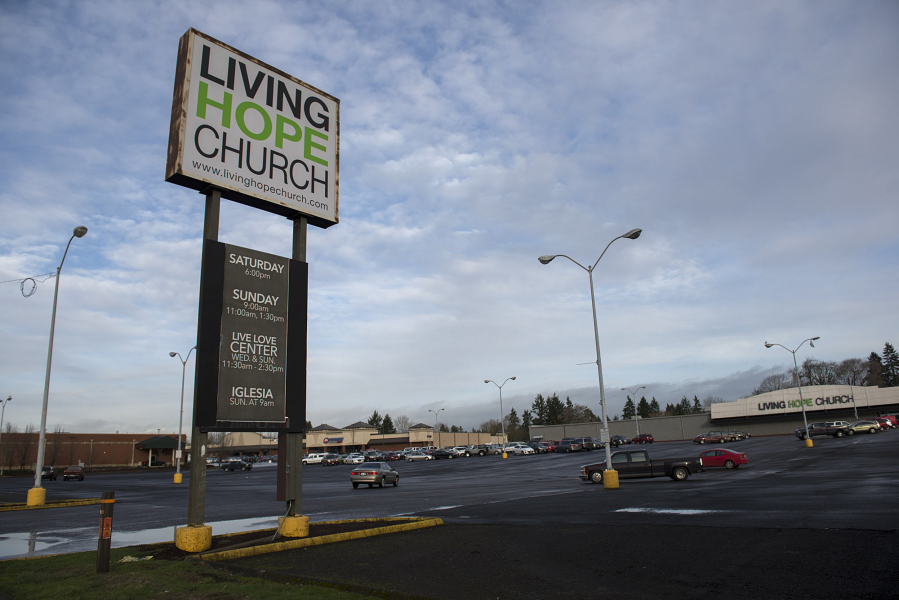Madore Properties, an LLC owned by David Madore, has purchased Living Hope Church for $4,746,700.
The Clark County councilor and U.S. Digital CEO bought the property, including the main building and the parking lot, on Oct. 14, according to a real estate excise affidavit signed by Madore and Kenny Fritzler, chair of the church’s board. Living Hope occupies a former Kmart building at 2711 N.E. Andresen Road, and there’s a neighboring chapel, too.
Madore, administrators at Living Hope and the church’s attorney, Jim David, were not available for comment Tuesday.
The sale will financially aid the struggling church.
After its former lead pastor John Bishop stepped down about one year ago citing moral indiscretions, it was discovered that the church had financial problems. His wife, Michelle Bishop, who was also a pastor, asked for a financial audit and then stepped down about a month later.
“We no longer have to worry about where we’re going to be or what we’re going to do. What we’re going to do is concentrate totally on fulfilling Matthew 28 — preaching the gospel to the lost and making disciples,” Mike Miller said in a recording of the church’s Oct. 16th service. He’s Living Hope’s current lead pastor and said Living Hope was paying $20,000 on the loan for the building.




